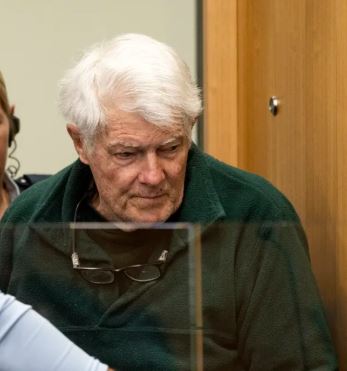
Elliot Cameron was jailed for life with a minimum non-parole period of 10 years at the High Court at Christchurch last week for murdering 83-year-old Frances Anne Phelps - known as Faye - on October 4 last year.
On Monday, a suppression order was lifted revealing he killed his brother in 1975 and was detained as a special patient after being found not guilty of murder by reason of insanity.
Police now say an initial call about the attack on Phelps, via 105 at 4.36pm on October 4, stated Cameron had disclosed to a nurse at Hillmorton Hospital that he assaulted a woman with an axe on the corner of Mount Pleasant and Bellview Ave.
"Given the limited information available at the time, the job was not coded as a serious or grievous assault, resulting in a unit not immediately being dispatched," the statement said.
Six hours later, at 10.43pm, another Hillmorton staff member called police and left a message, saying Cameron had since told them he made up the claim of assaulting someone.
"Police acknowledge that the job should have been coded as a serious or grievous assault, however, we believe it would not have changed the outcome of this terrible tragedy."

The calls to police were revealed at sentencing. The court was told Phelps' lawnmower man found her dead lying on the steps beside the garage door on October 7 and called emergency services.
The court summary of facts said Phelps would have died very soon after the injuries were inflicted, if not immediately.
RNZ exclusively obtained emails from Cameron to his cousin Alan Cameron sent over more than a decade, detailing his concerns that he might kill again.
In his 60s, having spent most of his life as a mental health in-patient, had emailed his cousin Alan about why he needed to remain in hospital.
"The probability of me repeating the offence outside hospital is greater than the probability of me repeating the offence where I am and so disrupting society is less when I remain in hospital," he wrote.
"I am correctly placed in a mental hospital. I should remain where I am."
Following the revelations, Chief Victims Advisor Ruth Money said it was hard to see Phelps' death as "anything other than preventable".
The public deserves an inquiry into the forensic mental health system, Money said.












